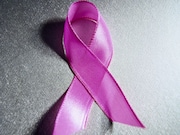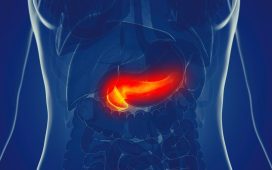But counseling not recommended for women without personal, family history, ancestry associated with BRCA mutations
TUESDAY, Aug. 20, 2019 (HealthDay News) — The U.S. Preventive Services Task Force (USPSTF) recommends that women who are at increased risk for BRCA1/2 mutations should undergo genetic counseling, and if indicated, genetic testing. These recommendations form the basis of a final recommendation statement published in the Aug. 20 issue of the Journal of the American Medical Association.
Heidi D. Nelson, M.D., M.P.H., from Oregon Health & Science University in Portland, and colleagues updated the 2013 USPSTF review on the benefits and harms of risk assessment, genetic counseling, and genetic testing for BRCA1/2-related cancer in women.
The task force found adequate evidence that the benefits of risk assessment, genetic counseling, genetic testing, and interventions were moderate for women with a family or personal history or ancestry associated with an elevated risk for harmful BRCA1/2 gene mutations. Adequate evidence was found that these benefits are small to none for women whose personal or family history or ancestry is not associated with an increased risk for BRCA1/2 mutations. Based on these findings, the USPSTF recommends an appropriate brief familial risk assessment tool for women with relevant personal or family history or ancestry. Women with a positive result should receive genetic counseling, and if indicated, genetic testing (B recommendation). Routine risk assessment, genetic counseling, and genetic testing are not recommended for women without a personal or family history or ancestry associated with BRCA mutations (D recommendation).
“Some women can benefit from risk assessment, counseling, and testing, but not all women need these services,” task force chair Douglas K. Owens, M.D., said in a statement.
Recommendation Statement
Evidence Report
Editorial 1 (subscription or payment may be required)
Editorial 2 (subscription or payment may be required)
Editorial 3 (subscription or payment may be required)
Editorial 4 (subscription or payment may be required)
Copyright © 2019 HealthDay. All rights reserved.








